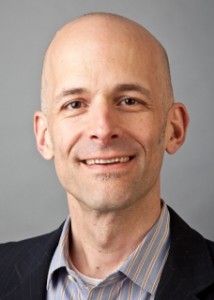National Science Foundation Funds Student and Faculty Research in Brazil
Sullivan Grunn ’17 (Anthropology) had only spent a few hours in Rio de Janeiro, the site of his spring study abroad program and capstone research project, when he was presented with an offer he couldn’t refuse.
Grunn’s capstone advisor, Benjamin Junge, an associate professor of anthropology and director of the Latin American and Caribbean Studies program, was in Brazil arranging logistics for a three-year research project on Brazil’s new middle class, a term which refers to the approximately 40 million Brazilians who have risen over the poverty line in the last decade primarily due to a federal social welfare program and an economy stimulated by a lucrative trade partnership with China.
Junge and co-investigators Sean Mitchell (Rutgers University) and Charles Klein (Portland State University) are conducting a comparative anthropological study of new middle class residents in Recife, São Paulo and Rio de Janeiro. The project is being funded by a $408,201 grant from the National Science Foundation (NSF).

Welcoming Grunn to Brazil, Junge mentioned that the NSF’s Research Experience for Undergraduates (REU) grant could provide funding for Grunn to conduct independent research that dovetailed with his own NSF project. They submitted a successful application, and the REU grant allowed Grunn to extend his stay in Brazil through the summer at Junge’s research site, Recife, located over a thousand miles northeast of Rio de Janeiro.
Junge and his co-investigators are seeking to understand the political and social identities of those within the new middle class, whose economic status may be threatened by the nation’s now volatile political climate. Brazil has been rocked by government corruption scandals, a flailing economy and the August impeachment of the country’s first female president, Dilma Rousseff.
“There are so many issues related to this group which are of special interest to us,” noted Junge. “We’re interested in their consumption habits, economic status, and all of that, but the thing that’s a special priority theme is this thing called political subjectivity, which is: how do they understand themselves as citizens? What are their expectations of the government? What do they see as their rights and responsibilities? In Brazil the vote is obligatory, so how does this group make sense of that?”
Junge and his research team spent the summer conducting a quantitative survey of 400 heads of household in Recife. They utilized Census data to find neighborhoods where they could expect a high proportion of new middle class residents and knocked on every fifth door to obtain a representative sample. His co-investigators in São Paulo and Rio de Janeiro used the same methodology and sample size.
With Junge’s assistance, Grunn carved out his own research niche, focusing on college students, a population that he’d studied for his capstone project in Rio de Janeiro. He’d conducted an online survey of 94 students enrolled at the private university where he was studying through the SUNY New Paltz study abroad program, the Pontífica Universidad Católica de Rio Janeiro. He attempted to assess the students’ political activity, their main sources of political information, and whether they believed the impeachment of President Rousseff was justified.
In Recife, Grunn conducted semi-structured interviews with 15 first-generation college students attending a public university. Because the students were all the first in their families to pursue higher education, Grunn believed the students represented an “important group for understanding economic mobility and emergent class subjectivities.”
Grunn knew he wanted to explore political subjectivity the moment he arrived in Brazil. “The political timing of my program made it nearly impossible to ignore the fierce responses of the Brazilian people as they tried to make sense of scandal, corruption and their own roles in the political-economic crisis looming over the country,” Grunn said.

Grunn’s six months studying in Rio de Janeiro with well-informed college students made him think more about the role universities have played historically and politically in Brazil. For his research in Recife, Grunn said he was curious how students who were relatively new to the university atmosphere responded to politically active colleagues and to the overall crisis itself.
Grunn did not speak the language when he arrived in Rio last spring, but he immersed himself in the university’s Portuguese language program and absorbed the constant “chatter” of political protests and demonstrations in the streets and on television. In Recife, he was able to conduct the interviews in Portuguese, with the aid of a research assistant.
Many of the students Grunn interviewed confessed that they had no real understanding of politics before attending college. The college experience shaped their political and social consciousness, often putting them at odds with their less-educated parents. Though they owed much of their economic rise to the policies of the leftist Worker’s Party, the new middle class did not largely support the party during the impeachment process.
“Some of the students expressed a grim frustration over their family’s political orientation and perspective, suggesting that their families oppose the Worker’s Party and President Dilma and do not acknowledge the accomplishments that the party has made,” said Grunn. Many of the students blamed the influence of biased, “big media” reporting for distorting their parents’ views – another possible contradiction, given that leftist social welfare programs made possible their parents’ purchase of flat screen televisions and other consumer goods previously beyond their reach.
Grunn also discovered that while Brazilian parents associate college degrees with economic mobility, they do not always respect the advanced learning those degrees represent. “I sensed a lot of frustration from some of my interviewees, in that they felt they could be taken seriously out in public (in the classroom, applying for jobs, interacting in the modern world) but will always be silly children at home,” said Grunn.
Junge is assisting Grunn in transcribing the interviews while also working to analyze his own massive quantitative survey data set. Though it will take some time to draw any conclusions, Junge said cynicism is a theme that has emerged from both studies. “There’s a lot of deep cynicism about politics broadly defined in Brazil. All of those in my study and in his study are very unenthused about democracy in Brazil,” Junge said. While distrust of politicians is not a new phenomenon in Brazil, Junge said it is “at a level” that he hasn’t seen in the 18 years that he’s studied the country.
Grunn will have the opportunity to present his research from Recife at the Society for Applied Anthropology Conference in Santa Fe in April. His research will be included in a panel dedicated to Junge’s research with his colleagues.
Grunn described having Junge as his mentor for his capstone and NSF research as a “real blessing.” “Aside from referring me to the NSF project, he helped me review and develop all my work on paper, and all the craziness in my head as well. In Rio, our weekly Skype sessions became a ritual for me that kept me focused on my [capstone] research, which conditioned me to do the same thing almost completely independently, in the northeast,” Grunn said.
Grunn said having a good mentor is invaluable in the academic world and in his future work as an anthropologist. “I feel prepared for what a career in this area will bring,” he said.

